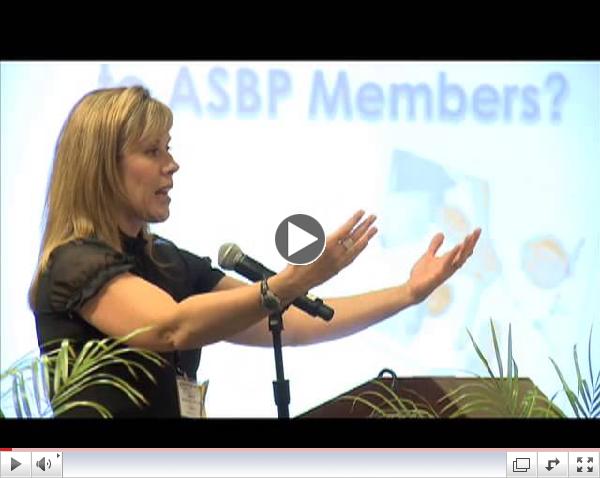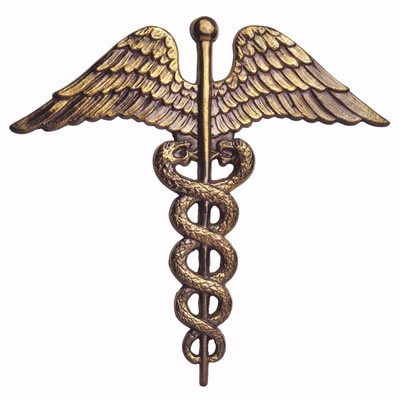This e-newsletter is sponsored by
|
|
Contact Us
| |
American Society of
Bariatric Physicians
2821 S. Parker Road
Ste. 625
Aurora, CO 80014
303.770.2526 | asbp.org
Staff
Laurie Traetow, CAE
Executive Director
laurie@asbp.org
Beth Amelon
Administrative Coordinator
beth@asbp.org
Carly Crosby
Administrative Coordinator
carly@asbp.org
Peter Conway
Intern, Marketing & Communications
peter@asbp.org
Heidi Gordon
Director of Marketing &
Communications
heidi@asbp.org
|
|
|
|
Obesity Medicine e-Weekly
|
|
Awards
 ASBP 2013 award nominations due Aug. 30 ASBP 2013 award nominations due Aug. 30
The Society will recognize leaders in the field of obesity medicine with awards presented during a ceremony at the 63rd Annual Obesity & Associated Conditions Symposium on Saturday, Oct. 12. All ASBP members are encouraged to click here to download and complete a nomination form for candidates who meet the criteria for one or more of the following awards. Nominations are reviewed by the ASBP Awards Committee. Nominations must arrive at the ASBP office by 5 p.m. (MST) on Friday, Aug. 30, and may be sent via e-mail to Carly Crosby , fax to 303.779.4834, or mail to ASBP | Award Nomination | 2821 S. Parker Road, Ste. 625 | Aurora, CO 80014.
- Dr. Vernon B. Astler Award: Recognizes efforts of an ASBP member to advance ASBP's place and purpose to the media, government and medical community, as Dr. Astler did in helping guide the society to secure a seat in the American Medical Association House of Delegates.
- Bariatrician of the Year: Recognizes a physician who has done the most to advance the field of bariatric medicine and ASBP.
- Raymond E. Dietz Award: Named in recognition of one of the pioneers of the society, this award recognizes an individual who has made continuing contributions to ASBP.
- Steelman-Seim Educator Award: Recognizes those who have exhibited excellence in advancing the cause of health care through education and teaching.
|
News
 Remember to vote in ASBP 2013 Elections by Friday, Aug. 16: Your vote will help shape the Society's future! Remember to vote in ASBP 2013 Elections by Friday, Aug. 16: Your vote will help shape the Society's future!
If you are a voting member of ASBP (i.e., physician, physician-in-training, retired physician or associate), please remember to submit your ballot for president-elect, vice president, secretary/treasurer and trustees (four vacant positions) by Friday, Aug. 16. Per ASBP Bylaws, all ballots are distributed and should be returned electronically. Please contact ASBP at 303.770.2526 if you are a voting member but did not receive the Aug. 6 (or Aug. 12 reminder) e-mail with a link to the ballot or experience other difficulties with the process. Results will be announced in this e-newsletter by Tuesday, Aug. 27.
 Early-2013 State-of-the-Society video available on YouTube Early-2013 State-of-the-Society video available on YouTube
Did you miss the ASBP 2013 Spring Obesity Conference in San Diego? If so, you also missed a presentation about all of the happenings during the past year and what to expect this year from your Society! Don't worry, though, we recorded the presentation by ASBP Vice President Deborah Bade Horn, D.O., M.P.H., F.A.S.B.P., and you can click here to view it. Please be sure to register for the Overcoming Obesity Symposium (Oct. 9-13 | Phoenix) so that you can see the next State-of-the-Society presentation in person!
|
Resources
Obesity Updates: Click titles to view articles
Friedman, A.N.; Chambers, M.; Kamendulis, L.M.; Temmerman, J. Clin J Am Soc Nephrol., August 2013.
The utility of a very-low-calorie ketogenic diet (VLCKD) in patients with diabetic nephropathy (DN) has n ot been well studied, due to the fact that patients with kidney disease are often excluded from participation. A pilot study (n=5) was conducted that used an intensive, medically supervised VLCKD to test the hypothesis that significant short-term weight reduction improves indices of kidney function and health in patients with advanced DN. The study found that after 12 weeks, a 12 percent weight reduction in patients with advanced DN led to improvements in markers of glomerular filtration, diabetes status and risk factors for kidney disease progression, as well as other general indicators of health and wellbeing. The findings from this study may offer hope to nephrologists who consider intensive weight-loss regimens with relatively high dietary protein to be contraindicated in advanced DN or other forms of chronic kidney disease. ot been well studied, due to the fact that patients with kidney disease are often excluded from participation. A pilot study (n=5) was conducted that used an intensive, medically supervised VLCKD to test the hypothesis that significant short-term weight reduction improves indices of kidney function and health in patients with advanced DN. The study found that after 12 weeks, a 12 percent weight reduction in patients with advanced DN led to improvements in markers of glomerular filtration, diabetes status and risk factors for kidney disease progression, as well as other general indicators of health and wellbeing. The findings from this study may offer hope to nephrologists who consider intensive weight-loss regimens with relatively high dietary protein to be contraindicated in advanced DN or other forms of chronic kidney disease.
Paoli, A.; Rubini, A.; Volek , J.S.; Grimaldi, K.A. European Journal of Clinical Nutrition, June 2013.
Evidence suggests that very-low-carbohydrate ketogenic diets (VLCKD) could have a therapeutic role in numerous diseases. Ketogenic diets typically contain less than 50g/day of carbohydrate and have a relative increase in the proportions of protein and fat consumed each day. This review article reexamines physiological ketosis and considers possible mechanisms for the therapeutic actions of the ketogenic diet on different diseases.
Davidenko, O.; Darcel, N.; Fromentin, G.; Tomé, D. European Journal of Clinical Nutrition, March 2013.
Protein is a necessary component of the diet as it provides nitrogen and essential amino acids for the body. High-protein diets promote satiety and reduce calorie intake, but the mechanisms for how the body senses protein and affects signaling related to satiety is not completely known. Protein sensing might take place in the mouth or in the gastrointestinal tract. Protein signaling to the brain may act through the vagal nerve and involve gastric hormones, such as cholecystokinin and peptide YY. High-protein diet enhances the activity of the nucleus of the solitary tract and arcuate nucleus, although the activity of brain reward centers might also be modified. This review focuses on understanding the role of both homeostatic and hedonic systems to fully describe the influence of protein on food intake.
|
Education
 Attend this year's largest conference dedicated to clinical obesity treatment! Early registration deadline is only four weeks away... Attend this year's largest conference dedicated to clinical obesity treatment! Early registration deadline is only four weeks away...

|
|
|
|
|